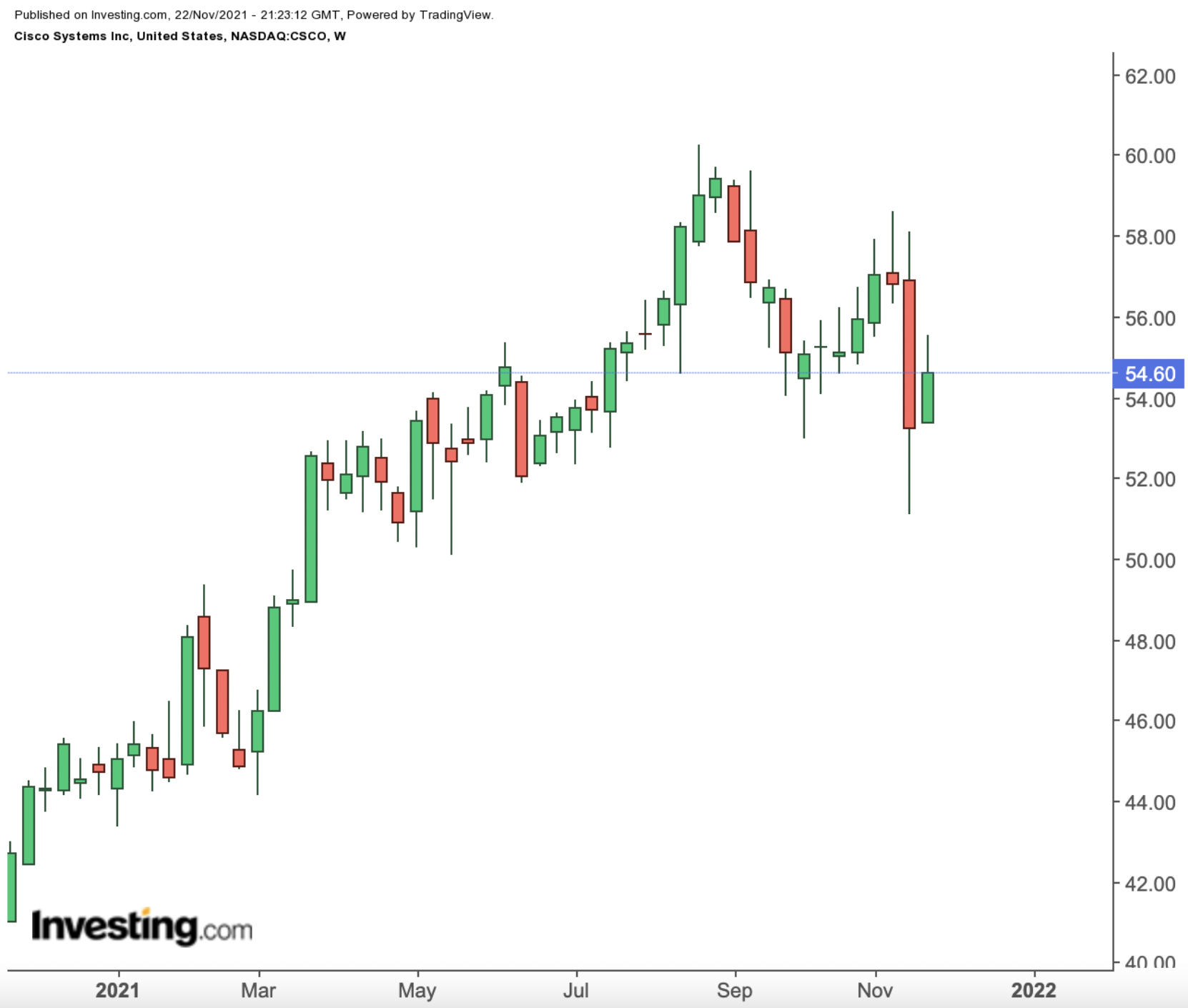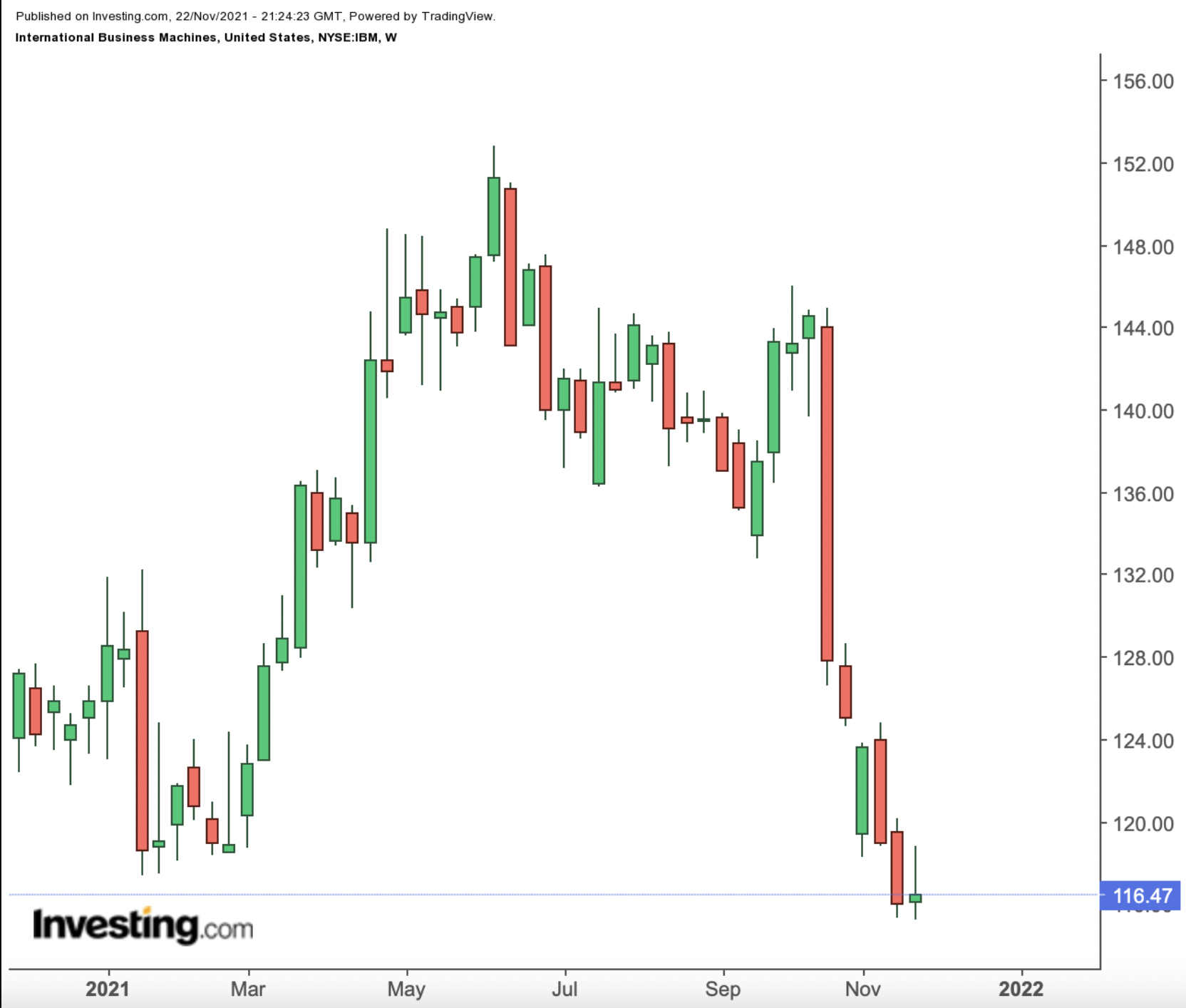For some retirees, technology is a no-go area due to the sector’s volatile nature and its inability to provide cash flows in the form of dividends.
But the COVID-19 pandemic has proved that having some exposure to this vital segment of our economy is important, even for those who invest for their retirement. When lockdowns, curfews and stay-at-home orders negatively hit traditional companies’ revenues, technology firms thrived as they offered connectivity and services that kept modern life—both personal and business activities—going.
Below, we have analyzed Cisco Systems (NASDAQ:CSCO) and International Business Machines (NYSE:IBM), two hardware giants that pay regular dividends with reasonable yields, to see which stock is a better fit in any long-term retirement portfolio.
1. Cisco
Among tech giants, Cisco doesn’t spark much excitement. The world’s biggest maker of routers and switches dominates in a cyclical market, focusing on the low-margin hardware products. But this will change drastically in the next four years. The Silicon Valley stalwart is being transformed into a provider of networking services delivered over the internet as well as a seller of software.
Revenue from subscriptions will reach 50% of Cisco’s total earnings by fiscal 2025, the company told analysts in September. As part of this push, the company is revamping its existing product categories, aligning them more closely with customer needs.

In the latest earnings report, Cisco repositioned its portfolio to reflect the new direction that its Chief Executive Officer, Chuck Robbins, is taking to accelerate growth. The revamped structure includes the Networks unit, Internet for the Future, which encompasses optical networking and 5G-related products, and Hybrid Work, which includes Webex and other collaboration tools.
In addition to growth, Cisco is also a reliable dividend payer. Though not yet considered an aristocrat, given it has only been paying a dividend for 12 years, Cisco has nonetheless raised its payout every year, making it an attractive option for those seeking growing income.
With a current annual yield of about 3%, investors are getting a quarterly payout of $0.37 a share. With a manageable payout ratio of 55%, there is more room for dividend hikes in the future as margins improve.
2. IBM
Unlike Cisco, IBM is a more complex turnaround bet. The 109-year-old company has been struggling to revive growth and compete in an environment where it has been left far behind. The major reason for this underperformance during the past decade: it became irrelevant in the fast-changing technology world, failing to innovate, thereby losing ground to new entrants.
But that weakness could offer a good entry point to long-term investors which would also enable potential stakeholders to lock-in the company’s attractive dividend yield—currently 5.56% annually—which comes with a solid history of cash distribution.

The New York-based IBM recently completed a spin-off that separated its slower-growth business from its high-margin cloud services—a market where Amazon (NASDAQ:AMZN) and Microsoft (NASDAQ:MSFT) have significant leads.
To make inroads in this highly competitive arena, IBM’s CEO, Arvind Krishna, has reorganized the company’s divisions around a hybrid-cloud strategy, which allows customers to store data in private servers and on multiple public clouds. The company expects to end 2021 in position to deliver mid-single-digit revenue growth and about $35 billion in free cash flow in 2022-24.
The stock currently pays a quarterly dividend of $1.64 a share, for a more than 5% yield, making it one of the highest-yielding stocks among blue-chip peers.
Bottom Line
Both Cisco and IBM, in our view, are safe dividend stocks for conservative investors aiming to build cash flows for their retirement. Both companies are taking steps to transition to high-margin service businesses. That shift has made their stocks attractive for both growth and income-oriented investors.
